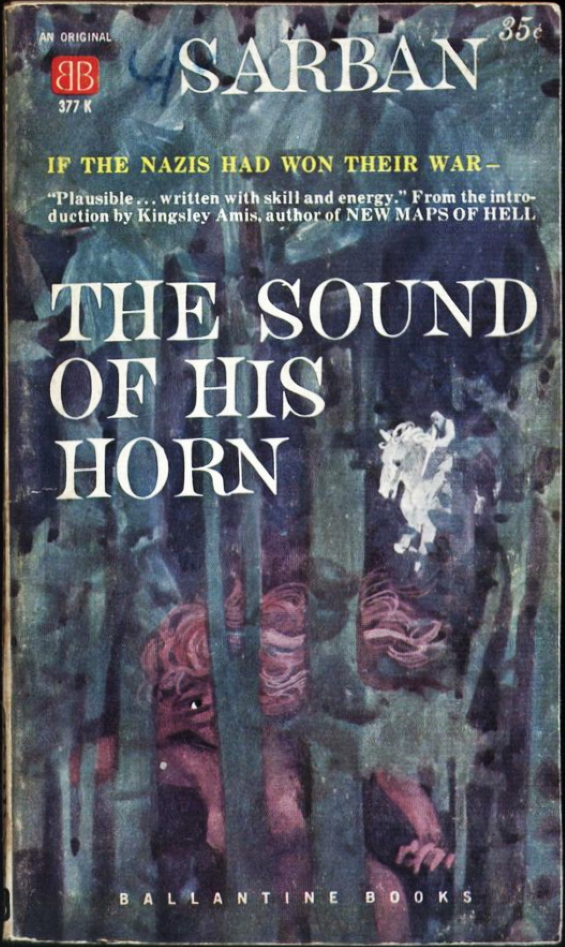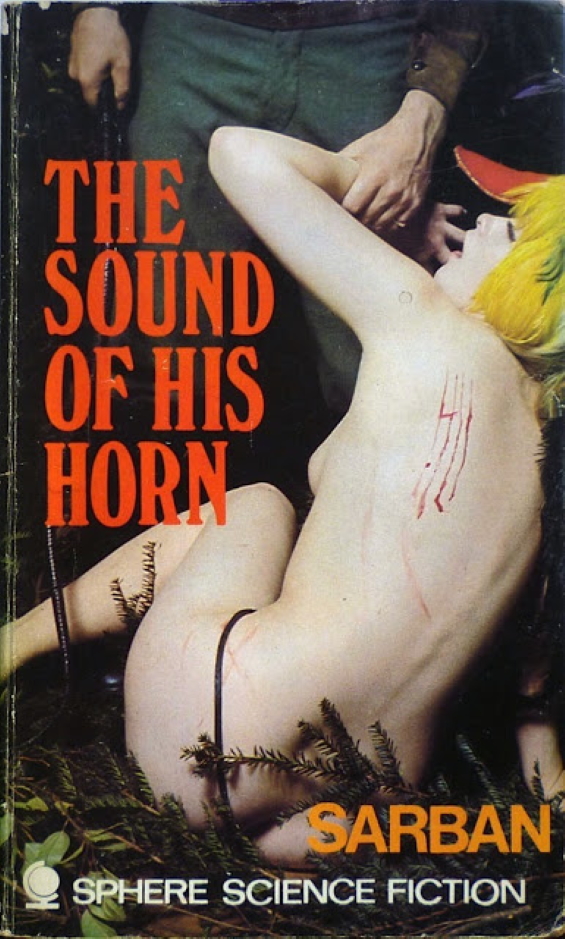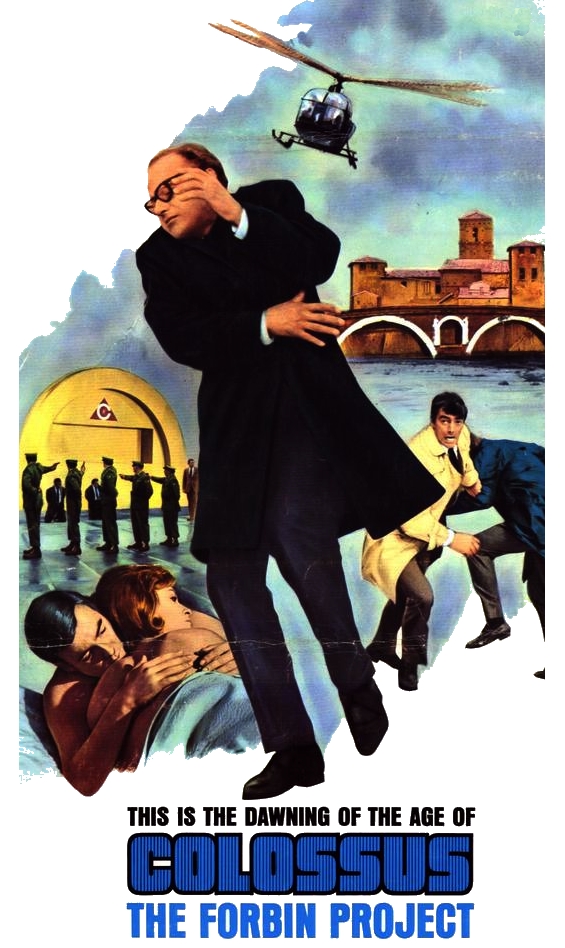
 The SFFaudio Podcast #570 – Jesse, Paul Weimer, and Olav Rokne talk about The Sound Of His Horn by Sarban
The SFFaudio Podcast #570 – Jesse, Paul Weimer, and Olav Rokne talk about The Sound Of His Horn by Sarban
Talked about on today’s show:
1952, the great Stefan Rudnicki, Dying Inside by Robert Silverberg, gravitas, how much should we think of it as a great book?, 100 best novels 1946-1987, number 12 amongst fantasy novels, a fantasy novel or a science fiction novel, an alternate history kick, The Man In The High Castle, Harry Turtledove, The Guns Of The South, Lest Darkness Fall, Bring The Jubilee, For Want Of A Nail by Robert Sobel, here today in 2019?, Axis victory novels, In The Presence Of Mine Enemies, techno veneer, the toxic nostalgia at the heart of fascism, the rejection of modernity, sylvan existence, mythologizing of the past, neo-feudalism, 100 years after reign?, The War For German Rights, not that far from our future, 2030s, Fuhrer means God now, Living Space by Isaac Asimov, kinda like Sliders, barely even know who Hitler was, the SS rituals, race theory, eugenics, genetic engineering, lions and dogs, vegetarian vs. Hermann Goering’s aesthetic, a symbolism book, vs. Albert Speer’s vision, SS-GB by Len Deighton, Fatherland by Robert Harris, Nazi-world, an analog for life behind the Berlin Wall, Kit, slightly tweaking the ideology, the world we don’t see, what makes it such an intriguing book, tech, the support system for a game preserve on a private estate, the horror of a Nazi regime, Two Dooms by C.M. Kornbluth, the body horror, fear horror, a Gothic castle, an anticipation not fully fulfilled, the Wild Hunt, was it real or was it all a delusion?, Deities & Demigods, the Huntmaster, Thor, driving game, myths versus legends, hearing the horn, join the hunt or become one of the hunted, pre-fascism, Herne The Hunter, inarticulate dread, fantastic stories, The Hounds Of Zaroff aka The Most Dangerous Game by Richard Connell, unencumbered from morality, a throwback, not the only one, Hans von Hackleburg, the curse of the Baskervilles, The Hound Of The Baskervilles by Arthur Conan Doyle, an evil morality, inferring the system, a strong warning, people who have suffered gender or race based violence, Allan’s fears, creeped, sexism, misogynist, anti-human, women are turned into cats and men are turned into hounds, a vegetarian argument, Pierre Boulle’s Planet Of The Apes, the difference between of human and prey, The Oval Portrait by Edgar Allan Poe, The Turn Of The Screw by Henry James, the framing story, a four hour audiobook, 42 minutes into the book, almost 1/4 of the story is the frame, two narrators, authenticated, kinda fun, The Wolf or The White Wolf by Guy de Maupassant, a wonderful funny horrible story, kill everything, a true story of France, strangles it “gently”, true from one end to the other, less about gender than it is about class, Reichmaster of Forests, the cat girls and the fiance in the frame, it could be interpreted that way, the descriptions of meat were stomach churning, “The unspeakable in pursuit of the uneatable!”, The Yellow Book (magazine), the book inside the book, the yellow 90s, a decadent book, Wayne June, $1.50 in 1895, a book for artists and high class folks, before he’s arrested and thrown in prison he’s playing a game, An Ideal Husband, The Importance Of Being Earnest, powerful versus popular, when Hillary Clinton was on Saturday Night Live, they pull their punches, Trump has been on Saturday Night Live, too thin skinned, more thin skinned, if you offend too much you’re going to get in trouble, going to far, Sinéad O’Connor, too true, not politic, a vegetarian propagandist book, I’m not so sure, the cat, a metonym for his wife, Kit, why doesn’t he want to tell her?, some distant 100 year old future, a screed against an activity she so enjoys, the terror, a world famous hunter, trophy room, a bridge too far, what is animal and what is human, a lot of science fiction, The Island Of Doctor Moreau by H.G. Wells but with Nazis, vivisection, The Time Machine, unreliable narrators, Wells allusions, another thread, utopian futures, the Bellamy school, Edward Bellamy’s Looking Backward, Robert A. Heinlein’s For Us, The Living, Just Imagine, The Marching Morons by C.M. Kornbluth, Idiocracy (2006), Rip Van Winkle by Washington Irving, Buck Rogers In The 25th Century, it’s a happy liberal future inside the city and homeless and we don’t spend time with the homeless people who are outside the city everybody is super happy enjoying their fancy clothes with robots and they spend time in outer space fighting Ming The Merciless and then outside the city we never talk about those dirty disgusting folks, it’s the same thing, clones of each other, a Marxist analysis of Gil Gerard’s Buck Rogers, intellectual property, we haven’t had a Space: 1999, a good point, the Dille family trust, Larry Niven and Jerry Pournelle, we don’t need more Buck Rogers, overdosed on Superman, When Worlds Collide by Philip Wylie and Edwin Balmer, the sequel, that Galt’s Gulch stuff, we are the elites, this lifeboat is for us, that comedy movie 2012 (2009) an unofficial reboot, Elon Musk is like Heinlein, Wernher von Braun was a fuckin SS nazi, D.D. Harriman, we don’t cut anything, dancing around The Sound Of His Horn, aged more in the last 25 years than in its first 40, more dated now, the ponderousness, become more of its time, flowery beautiful description, oooh this stuff is wonderful, the material is perfect for what it is, maybe its the relationship people have to it, imagine reading The Man In The High Castle in the 1960s, WWII was that much closer, its only aged in its relationship to us, a piece of art rather than a commercial work designed to put bums in seats, much more intellectual despite physical, spectacle, Blumhouse horror torture porn, the first Saw movie, the explanation is not the point the exclamation point was the point, the novel medium, dwelling more on certain paragraphs and certain sentences, immerse in Allan’s plight, feel his fear and apprehension, spend more time noticing connections between the outer narrator’s story and the inner narrator’s story, academic theses that nobody reads vs. big long blog posts that analyze the shit out of stuff, so many things in the meals in the hall the torchbearers, is that what I think it is?, trussing up the girls they’ve hunted as if they’re going to eat them, its not cannibalism its more like sadism and rape, the gentlemanly country estate of England vs. Nazi baronial estate, the two teams that went to war, the two cages (the POW camp and the estate), the games that they play within, another camp on the outside, concentration camps, slave labour employed, servants vs. slaves, not so much “you need to become a vegan, today” vs. considering the feelings of others, otherkin, a call for empathy, dwelling on the results of war and that setting, more connections sparking away, reading it in paper, not an easy book if you get squicked out, surgically modified, running to fat, brain surgery, bred, what’s happening to Kit, sent for reeducation, something to practice on, utopias and dystopias, all a part of a flow, patterns repeating throughout, in a dystopian novel it feels like everything is frozen, here’s a society that is perfected, Kim Stanley Robinson’s Pacific Edge, lots of little shitbirds fucking things up, we’re in a system headed in a good direction, Nineteen-Eighty Four, Brave New World, the resistance was gelded, News From Nowhere by William Morris, everybody should be an artist, The Wood Beyond The World, a rural paradise, adding a lot of filigrees to their hoes, a science fiction fantasy, things can’t change, we have that within us too, cultivating good habits, coming to a steady state, we’ve refined our morality, we’re refined our diets, and we’ve brushed our hair in just the right way, Francis Fukuyama’s the end of history, NATO’s still a thing, yup, life’s ridiculous, people can be cruel, Jesse doesn’t visit the United States, when Peter Watts got the shit kicked out of him at the border, if you give in, drawing lines in the sand, a job in Texas, if Bernie wins, the abuses heaped upon the Nazis are justified, a personal story, personally suffered, one nice way to read it, a walking dream, walking across Eastern Europe, he walks 100 years into the future, a daydream, he spins up the whole story, has this happened more than once to him?, falling back into fairy, The Elf-Trap by Francis Stevens, no fay element, Paul is arguing against himself, Thomas the Rhymer, mental illness, we don’t have perfect access to that, Oberon and Titania, torches as an affectation, plastic cup technology, high quality clothing, rich folks, not about the Nazis, what they did in Africa, you can’t really tell stories about swaths of people, stories about individuals, those personal relationships with a culture, without that frame the story doesn’t work very well, he is questioning hisself, speculating about Sarban’s knowledge of the crimes of the British Empire, parallels, Great Britain’s colonial history vs. the crimes of the Nazis, surveillance, no conscious critique of the British, what is our relationship to hunting, they do it unconsciously, a turkey hunt, why there are no lions, bears, and wolves in England, the gauleiter’s fake hunt, hunting fish in a barrel, mini-golf hunting, Barkerville, British Columbia, you pay for the pan the bag and the trough, a fake experience, not training, an ersatz experience, the reichforester has contempt for everybody around him, why is it like that?, a Medieval Times restaurant in Nazi Germany, its good to go out for a walk, a safe walk in nature, Mark Twain: golf as a good walk ruined, facial hair, the incarnation of the wildness, I will save you for another moon, a Nazi Utopia is a dystopia for the reichforester (he’s a manager at Disneyworld), I didn’t expect it to be like this, its different, what Sarban means: the kind of storyteller who traveled with caravans and entertained the travelers with stories, what Homer was, he’s basically a bard, a diplomatic career in the Middle East, how short it is, all the more plausible, you have your coffee you have your smoke, how to classify it, a horror book, no visceral reaction, Olav went vegetarian, no vegetables at that banquet, the dressing up of the game, two does, its not clear, on purpose, dehumanizing the pray, more dreamlike and more fey, the Star Wars experience in Disneyworld, a Star Wars store, a Star Wars lightsaber, the Batman costume with Batman’s face on the shirt, he’s not having fun, its not for him, Universal Studios’ Miami Vice experience, a spectacle vs. a ride, a cool idea, all of the jousting is every night, they’re actors, striving for utopia, regularize things, make things improved, best practices, self-driving cars, one day…, a trap, a fantasy we fall into, it fails to be a classic on a few levels, very affecting, a rich text, an intellectual experience, it doesn’t need to be that long, how much not spent in the actual world, where is the divergence point?, it doesn’t want or need to explore that, if it had been written in the 1890s, Prussian or Russian nobleman, it’s not about Nazis its about people, humans are fuckin weapons, dealing with things that have agency, what makes a bad society is having lots of people trending towards badness, not even saying that foxhunting is bad, Mike Vendetti, The Ballad of Reading Gaol by Oscar Wilde, people in power are fuckers, the cat’s name is Jan Smuts, best buds with Winston Churchill, both of them were in concentration camps in South Africa, Prime Minister of South Africa, maybe it is a critique, John Buchan’s The Grove Of Ashtaroth, in the hands of John Buchan (Lord Tweedsmuir), yellow 90s ruin, the last place on earth for this goddess to inhabit, it does matter, how we come out of the inner frame, who named that cat?, where is that damn cat?, let it out, why the outer narrator doesn’t understand why he shouldn’t tell her this story, Aneurin Bevan (father of the NHS), fascism is the future refusing to be born, toxic nostalgia.



Posted by Jesse WillisBecome a Patron!






